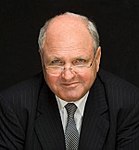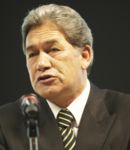New Zealand general election, 1993
|
|
|||||||||||||||||||||||||||||||||||||||||||||||||||||||||||||||||||||||||||||||||||
|---|---|---|---|---|---|---|---|---|---|---|---|---|---|---|---|---|---|---|---|---|---|---|---|---|---|---|---|---|---|---|---|---|---|---|---|---|---|---|---|---|---|---|---|---|---|---|---|---|---|---|---|---|---|---|---|---|---|---|---|---|---|---|---|---|---|---|---|---|---|---|---|---|---|---|---|---|---|---|---|---|---|---|---|
|
|||||||||||||||||||||||||||||||||||||||||||||||||||||||||||||||||||||||||||||||||||
|
|
|||||||||||||||||||||||||||||||||||||||||||||||||||||||||||||||||||||||||||||||||||
|
All 99 seats in the New Zealand House of Representatives 50 seats were needed for a majority |
|||||||||||||||||||||||||||||||||||||||||||||||||||||||||||||||||||||||||||||||||||
| Turnout | 1,922,796 (82.82%) | ||||||||||||||||||||||||||||||||||||||||||||||||||||||||||||||||||||||||||||||||||
|
|||||||||||||||||||||||||||||||||||||||||||||||||||||||||||||||||||||||||||||||||||
|
|||||||||||||||||||||||||||||||||||||||||||||||||||||||||||||||||||||||||||||||||||
The 1993 New Zealand general election was held on 6 November 1993 to determine the composition of the 44th New Zealand Parliament. It saw the governing National Party, led by Jim Bolger, win a second term in office, despite a major swing back towards the Labour Party. The new Alliance and New Zealand First parties gained significant shares of the vote, but won few seats. The election was New Zealand's last to date under the non-proportional first past the post electoral system.
Before the election, the National Party governed with 64 seats, while the opposition Labour Party held only 29. The 1990 election had been a major victory for the National Party, with the unpopular Fourth Labour Government being decisively defeated. The Labour Party had become unpopular for its ongoing economic reforms, which were based around liberalisation, privatisation, and the removal of tariffs and subsidies. The National Party was somewhat divided as to the merits of the reforms, with conservatives generally opposed and neoliberals generally in favour. The party had fought the 1990 election saying that the Labour government's program was too radical, and was being carried out without any thought of the social consequences - Jim Bolger spoke about "the Decent Society", promising a return to a more moderate and balanced platform. Once in government, however, the key Minister of Finance role was taken not by a moderate but by Ruth Richardson, who wished to expand, not end, the economic reforms. Many of the voters who had felt betrayed by Labour's reforms now felt betrayed by the National Party as well, a fact which contributed to the rise of minor parties.
...
Wikipedia




